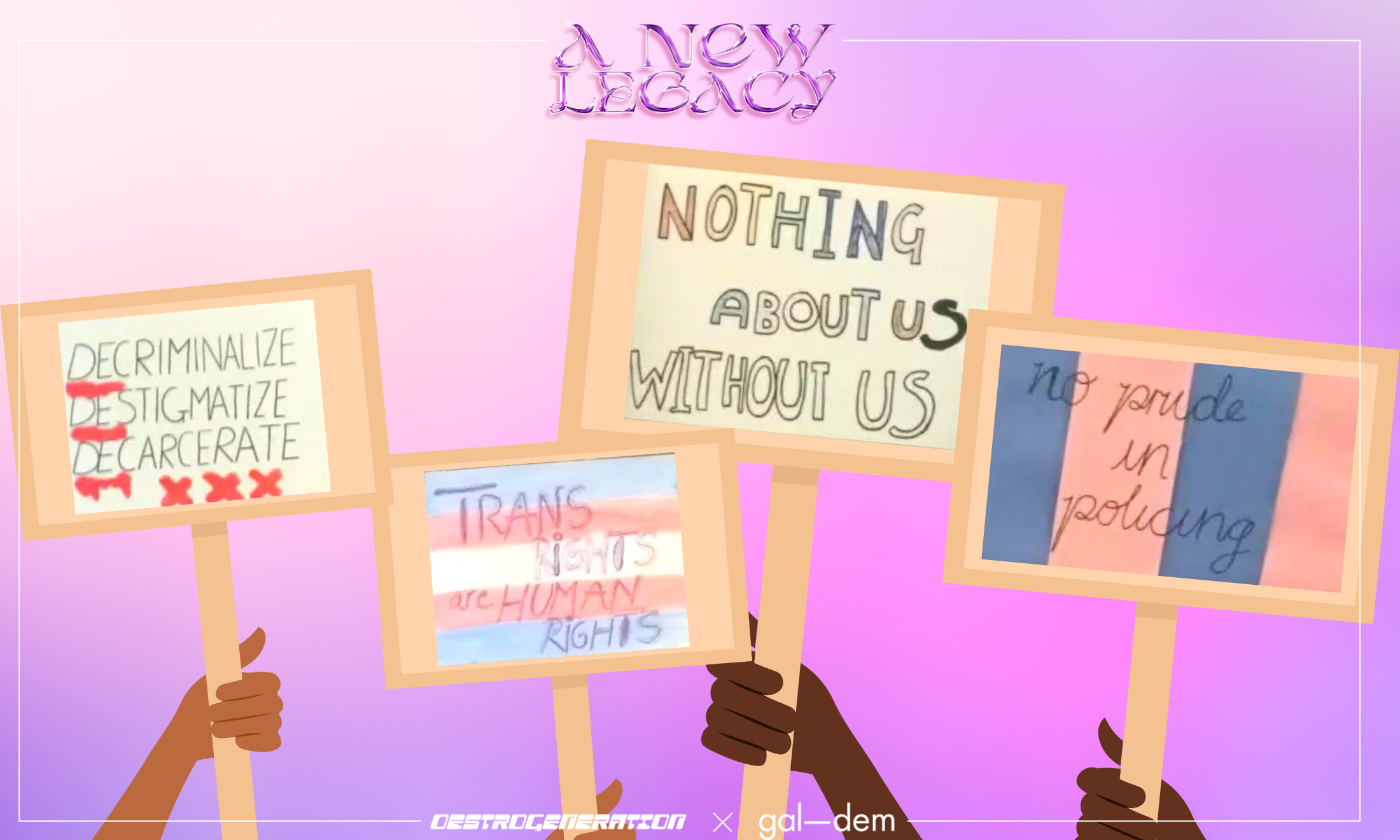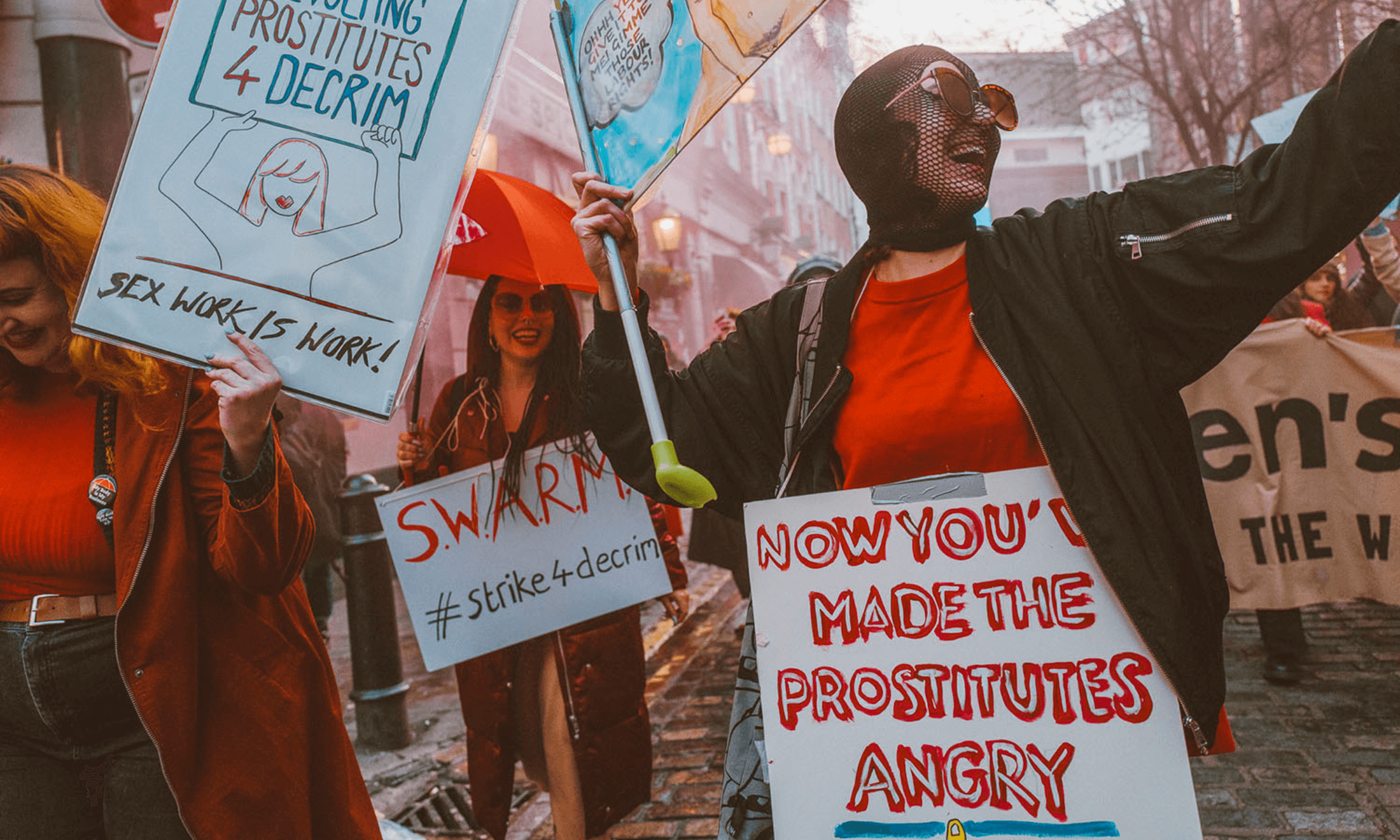How Bristol’s strip club ban could set a terrible precedent for sex workers across the UK
'Feminist' groups are leading the charge to ban strip clubs in Bristol. Is this part of a wider attack on sex workers in the UK?
Priyankaa Joshi
01 Jul 2021

Unsplash
Kayla* found out that her job might be in jeopardy through social media.
The 27-year-old, who is of Nigerian heritage, was idly scrolling through her phone in March this year, when she received a WhatsApp from a friend, with a link to a local news article. Clicking through, she read with growing fear about plans by Bristol City Council to ban strip clubs in the city.
“My heart just sank,” Kayla describes. “The first question that flashed through my mind was how I would survive financially if the ban goes through.”
For Chloe, 23, who has worked at both of Bristol’s lap-dancing clubs, Urban Tiger and Central Chambers, the news also came as a shock. “My initial reaction was utter dread and disbelief,” she says. “I couldn’t believe the council was proposing this without saying anything to us first. And to put us through this in a pandemic is honestly quite disgusting.”
In the UK, sexual entertainment venues (SEVs) are legal and it’s up to individual councils to decide whether to grant licenses. Bristol City Council’s current SEV policy allows a maximum of three clubs in the city, but thanks to a new proposal, developed by the licensing committee in March, the clubs could be forced to shut, plunging hundreds of people, mostly women, into unemployment.
The policy, which would set the maximum limit of SEVs in Bristol to zero, is backed by prominent figures including Mayor Marvin Rees and Labour MPs Kerry McCarthy and Thangam Debbonaire. It is also supported by women’s rights organisations such as Bristol Women’s Commission and Bristol Fawcett Society, who claim they are campaigning in the interest of women’s safety. According to them, strip clubs lead to violence against women and girls in the surrounding area.
But there is no empirical evidence which proves a correlation between strip clubs and sexual violence against women in Bristol. In fact, police data shows that between 2018 and 2020, sexual assaults were most common in large nightclubs, not strip clubs. It’s worth noting that the law states objections cannot be made on moral grounds, so anti strip-club campaigners have taken a community-based angle to advance their agenda.
Chlöe Hopkins, a labour member campaigning with Labour4Decrim, a grassroots group of sex workers and supporters in the Labour Party, argues the proposed ban is a moralistic response driven by a lack of respect for sex workers. “It falls into the faux feminist rhetoric that sex workers are both victims in need of rescuing and also somehow responsible for violence and harassment from men.
“They don’t care about us, they just see us as those sluts out there”
“The truth is, forcing the closure of strip clubs and pushing lots of women out of work isn’t an act of feminism,” she says.
For Bristolian stripper and sex work activist Tuesday Laveau, the proposed ban has little to do with women’s safety. “They don’t care about us, they just see us as those sluts out there. They know that criminalisation harms sex workers, there’s plenty of evidence it kills women in other countries, and they’re fundamentally okay with that. It’s cruel.”
“There are ways to tackle misogyny and violence against women without punishing sex workers. Removing a means of working that is the best or only option for lots of people is not the answer,” she says.
Stripper Chloe agrees, adding that anti-strip club campaigners should listen to sex workers, who have lived experience of the industry, rather than speaking over them. “We know what’s best for our safety so should be included in decisions about policies that affect us.”
Valentina*, a former dancer and member of the United Sex Workers union (USW) who has been supporting Bristol strippers with their efforts to resist the ban, points out that shutting down the clubs won’t shut down the industry, but instead pushes operations underground, forcing women to take on more dangerous work.
“It will move into Airbnbs, people’s houses and unregulated clubs where there won’t be the same kind of security and there’s no way to hold bosses accountable,” she says. “Some women may also move into riskier areas of sex work if they aren’t able to earn money through stripping in order to survive.”
This is something Kayla is particularly worried about. With clubs closed due to the pandemic, she has struggled to make ends meet. “I’m lucky I’ve got some savings and have been getting by but I know girls who have been doing private parties in remote locations where there’s no CCTV and no management. It’s pretty scary,” she tells me.
If the proposed strip club ban does go through, Kayla is concerned she will have no option but to take on more dangerous work too. “Like many sex workers, I’m not in a position where I can get a minimum wage job working all hours to scrape a living. I have health problems and caring responsibilities so dancing is the best option for me right now.”
Fighting back
Since finding out about the council’s plans to eradicate the city’s SEVs, members of the Bristol Sex Workers Collective (BSWC), including Chloe and Tuesday, have been fighting to resist the ban with support from USW.
“The first thing we have is a change.org petition – which has over 6,000 signatures so far – to keep the maximum limit of clubs in the city at three instead of nil,” says Tuesday.
The group has also been working hard to raise awareness of their campaign on social media and in the press. Ahead of the local elections in May, they reached out to candidates for support and have since connected with sex worker groups across the country who are facing similar challenges.
“It’s about making as much noise as possible to get people to support the campaign and resist the nil cap,” says Valentina. She tells me USW has also been in touch with unions such as Equity, the union for British performers and creatives in the entertainment industry. “If they come out and publicly support our cause, it would really help us. It’s in their interests too because if the ban goes through, it could set a precedent for workers across the gig economy,” she explains.
Currently, it is a waiting game for Bristol’s strippers, as the proposed ban undergoes a 12-week public consultation. Following this, it will return to the licensing committee for a final decision.
If the bill does go through, it could set a devastating precedent for sex workers across the country, something particularly concerning 23-year-old full-service sex worker Layla*. “If they’re able to push this through without significant public backlash in a liberal city like Bristol, it opens the door for them to further their agenda to criminalise sex work at a national level,” she tells gal-dem.
The bigger picture
“This is just one part of a wider attack on sex workers and marginalised communities in the UK, and it’s really scary.”
As well as the proposed SEV ban, members of the BSWC are fighting to resist broader moves towards further criminalisation of sex work, spearheaded by a Labour MP. In June, Hull MP Dame Diana Johnson tabled amendments to the Police, Crime, Sentencing and Courts Bill in an attempt to enact Nordic Model sex laws in England and Wales.
Nordic Model legislation ostensibly decriminalises sex workers and criminalises paying for sex, as well as websites where sex workers advertise. The legal model, first introduced in Sweden in 1999, is currently in place in Sweden, Norway, Iceland, France, Ireland, Northern Ireland and Canada.
“A 2018 report found that in France, 42% of sex workers experienced more violence following the introduction of the Nordic Model”
According to proponents of the model, it protects sex workers from violence and exploitation by reducing demand and helping them to exit the industry. But evidence from countries where it is enforced shows that in reality, the measures only serve to exacerbate violence towards women. Sex workers say that the Nordic Model increases the risks of their trade thanks to fewer clients, who want to meet in more isolated areas.
A 2018 report by Médecins du Monde found that in France, 42% of sex workers experienced more violence following the introduction of the Nordic Model. Meanwhile, in Ireland, crimes against sex workers rose by 92% in the two years after the new law came in. In America, where similar federal legislation (SESTA/FOSTA) was introduced in 2018, evidence shows sex workers have been pushed into financial insecurity.
“The prospect of the Nordic Model is absolutely terrifying,” says sex worker and member of the BSWC Audrey Whorne. “The pandemic has given us a taste of what life under the Nordic Model is like and it’s been traumatic. Many of us are questioning how we’ll even survive if it comes into law.”
A predictable outcome
As ever, it will be the most marginalised in the industry – women of colour, migrants, single mothers, trans women and LGBTQI+ people – who are hit hardest by increased criminalisation of sex workers.
“We know that many women of colour choose sex work precisely because of the marginalisation and discrimination they face in society,” Hopkins says. “Cutting off an avenue for work can push them into poverty.”
Under the Nordic Model, Hopkins explains, women of colour are more likely to be targeted by the police. In order to avoid criminal sanctions and police harassment, they may take on more dangerous work, making them more vulnerable to violence, racial discrimination and exploitation. At the same time, the threat of loss of livelihood means marginalised groups are reluctant to report their experiences of abuse.
Layla can attest to this. As a sex worker of colour, she tells me that she, along with other sex workers of colour she knows, feel unable to ask the police for help. “Sex workers, in general, don’t get taken seriously when they report harassment or violence to the police but that’s multiplied for people of colour,” she says. According to Layla, criminalisation through the Nordic Model would make it even harder for sex workers to speak up and get justice.
What is important now, agree all those who spoke to gal-dem, is that people listen to sex workers, amplify their voices and show public support for sex workers’ demands, starting by opposing Bristol’s ban on strip clubs.
“Lots of people who think of themselves as liberal and progressive still find sex work uncomfortable but if they hold on to that discomfort, it means that conservative anti-sex work campaigners can push through whatever they want because no one will stand with sex workers when we need them to,” says Layla.
“If you consider yourself a feminist then you must include sex workers rights’ in your feminism. We need your support now more than ever,” adds Valentina.
Actions you can take to oppose Bristol’s strip club ban:
- Sign and share the BSWC’s change.org petition.
- Bristol residents will be able to share their thoughts on the proposed ban when it is out for consultation this summer. Follow the Bristol Sex Workers Collective on Twitter who will be posting updates.
Actions you can take to oppose criminalisation for the sex industry via The Nordic Model:
- Sign DecrimNow’s open letter opposing the Nordic Model alongside Amnesty International, Freedom United and Stonewall
- Email your MP using this template created by DeCrim now. Hopkins says adding a personal note to the template is beneficial.
- Support #KillTheBill to oppose Diana Johnson’s amendment
Other actions you can take to support sex workers:
- Support and donate to sex worker organisations such as SWARM, National Ugly Mugs, English Collective of Prostitutes and SCOT-PEP.
- Audrey Whorne suggests reading Revolting Prostitutes by Juno Mac and Molly Smith to educate yourself about the sex workers’ rights movement.
*Names have been changed to protect identities
Like what you’re reading? Our groundbreaking journalism relies on the crucial support of a community of gal-dem members. We would not be able to continue to hold truth to power in this industry without them, and you can support us from £5 per month – less than a weekly coffee!!

Britain’s policing was built on racism. Abolition is unavoidable

How Pakistan’s Khwaja Sira and transgender communities are fearing and fighting for their futures

Their anti-rape performance went viral globally. Now what?






